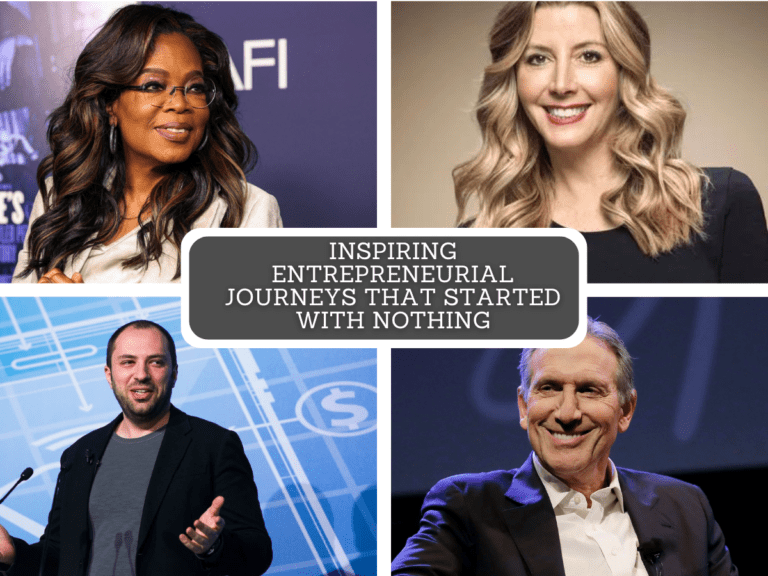Money Mindset Mastery: 8 Habits of Highly Successful Wealth Builders.
In the pursuit of wealth, the mindset often plays a more significant role than one’s strategies or tactics. The world’s most successful wealth builders share common habits that have helped them create and sustain their fortunes. These habits are not mere tricks but deeply ingrained practices that align their mindset with their financial goals. This article explores eight crucial habits of highly successful wealth builders that you can adopt to master your money mindset.
1. Setting Clear and Achievable Goals.
Highly successful wealth builders understand the power of setting clear, specific, and achievable goals. They don’t just dream of becoming wealthy; they define what wealth means to them in precise terms. Whether it’s saving a specific amount of money, investing in certain assets, or generating passive income, their goals are well-defined and time-bound.
Real-Life Examples:
- Warren Buffett: Known for his meticulous goal setting, Buffett started investing at a young age with clear financial milestones.
- Elon Musk: His goal to revolutionize space travel with SpaceX was audacious but clear, driving the company’s strategy and growth.
How to Set Effective Financial Goals:
- Be Specific: Instead of saying “I want to save more money,” specify an amount, like “I want to save $20,000 in the next 12 months.”
- Make Them Measurable: Ensure your goals can be tracked. Use tools like spreadsheets or financial apps to monitor progress.
- Set Deadlines: Goals without deadlines are dreams. Establish a realistic timeline for achieving each goal.
- Break Down Large Goals: Divide bigger goals into smaller, manageable tasks to avoid feeling overwhelmed.
Read Now: 10 Steps to Achieving Your Money Goals
2. Practicing Consistent Financial Education.
The best wealth builders never stop learning. They stay updated with the latest trends in finance, investment strategies, and market movements. Continuous learning helps them make informed decisions and adapt to changing financial environments.
Real-Life Examples:
- Ray Dalio: Founder of Bridgewater Associates, Dalio emphasizes learning from history and constantly updates his knowledge about economic cycles.
- Oprah Winfrey: Despite her success, Oprah continues to educate herself on business and personal development.
Ways to Enhance Financial Education:
- Read Books: Pick up books by renowned financial experts like Warren Buffett, Robert Kiyosaki, or Benjamin Graham.
- Follow Financial News: Regularly read financial newspapers and websites like Bloomberg, CNBC, and The Wall Street Journal.
- Take Online Courses: Platforms like Coursera, Udemy, and Khan Academy offer excellent courses on finance and investment.
- Attend Seminars and Workshops: Engage with experts and like-minded individuals through financial seminars and workshops.
Read Also: Investing Insights: 10 Proven Expert Tips for Building a Solid Financial Portfolio
3. Maintaining a Positive Relationship with Money.
Successful wealth builders view money as a tool for achieving their goals rather than a source of stress. They develop a healthy relationship with money, seeing it as a means to an end, not an end in itself. This mindset reduces anxiety and encourages smarter financial decisions.
Real-Life Examples:
- Sarah Blakely: The founder of Spanx, Blakely started her business with $5,000 in savings, maintaining a positive and resourceful relationship with money.
- Richard Branson: Known for his adventurous spirit, Branson sees money as a way to fund his ventures and explore new opportunities.
Cultivating a Positive Money Mindset:
- Practice Gratitude: Appreciate what you have and recognize the opportunities that money can bring.
- Avoid Negative Self-Talk: Replace phrases like “I’ll never be able to afford that” with “How can I afford that?”
- Visualize Success: Imagine the lifestyle and freedom that financial success will bring.
- Stay Disciplined: Develop a habit of budgeting, saving, and investing consistently.
4. Investing in Themselves and Their Skills .
Investment in personal development is a common trait among successful wealth builders. They understand that their knowledge, skills, and health are the greatest assets. By continuously improving themselves, they enhance their earning potential and decision-making abilities.
Real-Life Examples:
- Bill Gates: Gates spends hours reading books and articles to stay informed and ahead.
- Arianna Huffington: Founder of The Huffington Post, she emphasizes well-being and personal development as keys to success.
Self-Investment Strategies:
- Pursue Higher Education: Advance your qualifications or gain new skills relevant to your industry.
- Learn New Skills: Acquire skills that are in demand, such as coding, digital marketing, or project management.
- Focus on Health: Maintain a healthy lifestyle to ensure long-term productivity and well-being.
- Network Actively: Build a strong professional network to open up new opportunities.
5. Embracing Smart Risk-Taking.
Wealth builders understand that taking calculated risks is essential for growth. They analyze potential investments, weigh the risks against the rewards, and make informed decisions. This habit differentiates them from those who shy away from risks or take reckless gambles.
Real-Life Examples:
- Jeff Bezos: Taking the risk to start Amazon from his garage, Bezos transformed it into a global powerhouse.
- Steve Jobs: Jobs’ decision to innovate and create revolutionary products involved significant risks but yielded tremendous rewards.
How to Take Smart Financial Risks:
- Conduct Thorough Research: Understand the market, industry, and specific opportunity before investing.
- Diversify Investments: Spread investments across different asset classes to mitigate risk.
- Have a Backup Plan: Always have an exit strategy in case things don’t go as planned.
- Consult Experts: Seek advice from financial advisors or mentors with experience in the field.
6. Practicing Frugality and Delayed Gratification.
Frugality doesn’t mean being cheap; it means being resourceful and mindful of spending. Successful wealth builders prioritize long-term benefits over short-term pleasures. They delay gratification to ensure that their financial future is secure.
Real-Life Examples:
- Mark Zuckerberg: Despite his immense wealth, Zuckerberg is known for his modest lifestyle and prudent spending.
- Ingvar Kamprad: The founder of IKEA, Kamprad lived frugally and believed in spending money wisely.
Adopting a Frugal Lifestyle:
- Track Your Spending: Use budgeting apps to keep track of where your money goes.
- Cut Unnecessary Expenses: Identify and eliminate expenses that don’t add significant value to your life.
- Prioritize Saving and Investing: Allocate a portion of your income to savings and investments before spending on luxuries.
- Learn to Say No: Resist the temptation to make impulsive purchases or financial commitments.
7. Building Multiple Income Streams.
Relying on a single source of income is risky. Wealth builders understand this and create multiple streams of income to ensure financial stability and growth. Diversifying income sources not only provides security but also accelerates wealth accumulation.
Real-Life Examples:
- Barbara Corcoran: Known for her real estate empire, Corcoran also earns from her investments, TV appearances, and book sales.
- Tony Robbins: The motivational speaker earns from books, seminars, investments, and consulting.
Creating Multiple Income Streams:
- Invest in Real Estate: Rental properties can generate a steady stream of passive income.
- Start a Side Business: Leverage your skills or hobbies to create additional income.
- Invest in Stocks and Bonds: Build a diversified portfolio to earn dividends and capital gains.
- Create Digital Products: Sell ebooks, online courses, or other digital products.
- Engage in Freelancing: Offer your expertise on platforms like Upwork or Fiverr.
Read This: Profitable Side Hustles: 20 Ideas for Earning Extra Income
8. Giving Back to Society.
Philanthropy is a key habit of many wealthy individuals. They believe in using their wealth to make a positive impact on society. This not only helps others but also brings a sense of fulfillment and purpose to the wealth builders themselves.
Real-Life Examples:
- Bill and Melinda Gates: Their foundation focuses on global health and education, making a significant impact worldwide.
- Oprah Winfrey: Through her foundation, Oprah supports various educational and empowerment initiatives.
Ways to Give Back:
- Donate to Charities: Support causes that resonate with you by donating to relevant organizations.
- Volunteer Your Time: Offer your skills and expertise to help non-profits or community projects.
- Mentor Others: Share your knowledge and experience with aspiring entrepreneurs or students.
- Create a Foundation: Establish a foundation to support ongoing charitable initiatives.
Broader Themes in Money Mindset Mastery
The Power of Mindfulness and Mental Resilience.
Building wealth requires mental strength and resilience. Successful individuals practice mindfulness and stress management to stay focused and motivated. Techniques such as meditation, exercise, and maintaining a work-life balance are crucial.
Leveraging Technology for Financial Growth.
Modern wealth builders leverage technology to their advantage. From using financial management apps to investing in fintech startups, embracing technology can streamline your path to financial success.
Understanding and Overcoming Psychological Barriers.
Psychological barriers, such as fear of failure or imposter syndrome, can hinder financial success. Recognizing and overcoming these barriers is essential. Techniques include positive self-affirmation, seeking therapy, and surrounding yourself with supportive individuals.
Community and Networking .
Wealth builders understand the importance of community. Engaging with like-minded individuals, joining financial forums, and attending networking events can provide valuable insights and opportunities.
Conclusion
Mastering the money mindset requires adopting habits that align your thoughts and actions with your financial goals. By setting clear goals, continuously educating yourself, maintaining a positive relationship with money, investing in yourself, taking smart risks, practicing frugality, building multiple income streams, and giving back to society, you can emulate the success of the world’s wealthiest individuals. Start incorporating these habits into your daily life and watch your financial success grow.
Engage with Us!
We’d love to hear your thoughts on these habits. Do you practice any of them? Which ones will you start adopting? Share your experiences and join the conversation on social media. Follow us for more insights on wealth building, personal finance, and achieving financial freedom.
This comprehensive guide aims to provide valuable insights and practical steps to mastering the money mindset. Remember, success is a journey, and these habits can pave the way to achieving your financial dreams.


















